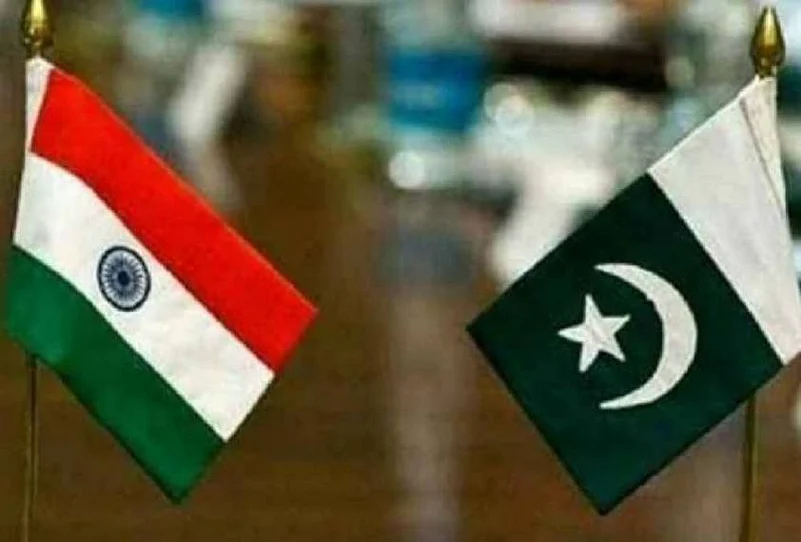Pakistan’s rejection of Jayant Khobragade as India’s new chargé d'affaires in Islamabad citing his seniority for the post as a reason for rejection is in keeping with the bitter antagonism between India and Pakistan that has intensified in the last few years. It has reached almost a dead-end since the scrapping of Kashmir’s special status last August.
Islamabad’s official explanation is that Khobragade having already served as ambassador earlier was not eligible for the post which is normally slated for diplomats at a lower rung. The Foreign office spokesman said it was India’s way of subverting the downgrading of diplomatic ties announced by Pakistan after article 370 was abolished by New Delhi. The spokesman said it must be made clear that ties between the two nuclear-armed neighbours were linked to the resolution of the Kashmir dispute.
Advertisement
It is part of the diplomatic norm to send the name of senior diplomats for the host country’s approval. In normal times not much fuss is made over this. But when India-Pakistan ties are strained diplomats become easy targets. Khobragade rejection is mainly to needle India and convey to ordinary Pakistani citizens that Prime Minister Imran Khan is not lowering his guard against India at every little turn.
In 2003, when India-Pakistan was going through another bad patch, Pakistan’s acting high commissioner in Delhi, Jalil Abbas Jilani was forced to leave the country over allegations of funding Kashmiri separatists. Jilani said then that the charge was a crude attempt at harassing Pakistan, high commission officials. He was declared ``persona non grata” but when relations improved he returned to India at the head of a Pakistan delegation for talks, as the Vajpayee government began re-engaging with Islamabad.
Advertisement
But unlike in the past, chances of an India-Pakistan rapprochement soon appear dim. Kashmir has always been a major stumbling block and now after India’s latest move on August 5, 2019, it has become a Gordian knot.
And Pakistan does not let an opportunity go by without dragging in Kashmir. Even in the case of rejecting Khobragade the foreign office spokesman statement contained these lines on Kashmir. ``A just and lasting solution of the Jammu and Kashmir dispute is critical for durable peace and stability in South Asia. Accordingly, India is once again reminded of its international obligations with regard to the Jammu and Kashmir dispute. India must listen to the voices of the Kashmiri people and the world community.”
In a way, Kashmir has helped Prime Minister Imran Khan to galvanise the public behind him. At a time when his government was fumbling with little to show as achievement, New Delhi’s decision on Kashmir helped to bolster his image as a crusader for the rights of Kashmiris. He did not leave a stone unturned in projecting Indian atrocities in the valley. Unfortunately, Khan got little traction from the international community. A few countries supported him on the abolition of special status for Kashmir, which Delhi said was its internal issue. But there was criticism from several international quarters on the lockdown and the communication embargo imposed on Kashmiris.
Advertisement
Thanks to the internal jockeying for power within the Islamic world, Pakistan failed to get the backing of the powerful Sunni powers: Saudi Arabia and United Arab Emirates. That was not just since both leading Gulf kingdoms had vastly improved ties with India under Prime Minister Narendra Modi, but because of the jostling among Sunni leaders for the leadership of the Muslim world. Turkey’s Recep Erdogan and Malaysia’s former prime minister Mahathir Mohamad were solidly behind Pakistan. Soon afterward India the largest buyer of palm oil from Malaysia stopped importing, to drive home the point that there is a price to pay for criticising Delhi’s Kashmir policy. That was last year. But now it has gradually begun to lift palm oil again from Malaysia. Mahathir is no longer prime minister.
Advertisement
China Pakistan’s all-weather friend has been batting for Imran Khan all the way, getting the UNSC to hold a closed-door meeting on Kashmir. China had its own problems with India over making Ladakh a union territory. No one knows if the current military stand-off between China and India is related to the political moves on Ladakh. But one thing is clear, Pakistan’s military and political leadership is delighted at the confrontation in the Himalayas. There is talk in sections of the Pakistan establishment that a two-pronged war, could finally lead to the liberation of the Kashmir valley.
All this is happening at a time when opposition parties under the Pakistan Democratic Movement is coming together to challenge the Imran Khan governments. Former prime minister Nawaz Sharif of the Pakistan Muslim League, in London for health reasons, took the opportunity to hit out at both Khan and the military establishment. Though Sharif began his political career with the backing of former military dictator Zia-Ul Haq, he soon got a taste of the army’s control of civilian governments. The army ensured that he was ousted, not once but twice. On Sunday, Nawaz pointedly called for a stop to army interference on domestic issues and took on the military by saying that it operated as a ``state above the state in the country.’’
Advertisement
Despite the opposition’s intentions, dislodging Imran Khan who has the backing of the powerful military would be difficult. In the meantime, India and Pakistan will continue attacking each other at every international forum over terrorism and Kashmir respectively. To be fair to Narendra Modi he did attempt to make peace with Pakistan at the beginning of his first term in power. But the attack on the Pathankot air force base followed by the Uri terror strike put a stop to any new peace initiative. The view in the establishment is that the Pakistan army is in no mood to lose its relevance by encouraging a breakthrough in India-Pakistan ties. So, it is pointless to spend time and energy on a futile exercise.




















